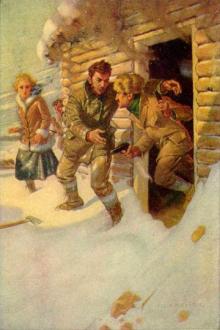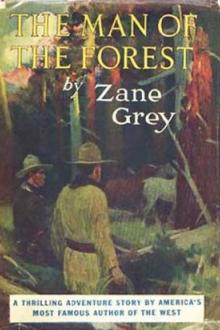Astoria; Or, Anecdotes of an Enterprise Beyond the Rocky Mountains by Irving (top romance novels .TXT) 📗

- Author: Irving
Book online «Astoria; Or, Anecdotes of an Enterprise Beyond the Rocky Mountains by Irving (top romance novels .TXT) 📗». Author Irving
Other furs are employed and valued according to the caprices of fashion, as well in those countries where they are needed for defenses against the severity of the seasons, as among the inhabitants of milder climates, who, severely of Tartar or Sclavonian descent, are said to inherit an attachment to furred clothing. Such are the inhabitants of Poland, of Southern Russia, of China, of Persia, of Turkey, and all the nations of Gothic origin in the middle and western parts of Europe. Under the burning suns of Syria and Egypt, and the mild climes of Bucharia and Independent Tartary, there is also a constant demand, and a great consumption, where there exists no physical necessity. In our own temperate latitudes, besides their use in the arts, they are in request for ornament and warmth during the winter, and large quantities are annually consumed for both purposes in the United States.
From the foregoing statements, it appears that the fur trade must henceforward decline. The advanced state of geographical science shows that no new countries remain to be explored. In North America the animals are slowly decreasing, from the persevering efforts and the indiscriminate slaughter practiced by the hunters, and by the appropriation to the uses of man of those forests and rivers which have afforded them food and protection. They recede with the aborigines, before the tide of civilization; but a diminished supply will remain in the mountains and uncultivated tracts of this and other countries, if the avidity of the hunter can be restrained within proper limitations.
* An animal called the stoat, a kind of ermine, is said to be found in North America, but very inferior to the European and Asiatic. * * The finest fur and the darkest color are most esteemed; and whether the difference arises from the age of the animal, or from some peculiarity of location, is not known. They do not vary more from the common marten than the Arabian horse from the shaggy Canadian.Height of the Rocky Mountains.
VARIOUS estimates have been made of the height of the Rocky Mountains, but it is doubtful whether any have, as yet, done justice to their real altitude, which promises to place them only second to the highest mountains of the known world. Their height has been diminished to the eye by the great elevation of the plains from which they rise. They consist, according to Long, of ridges, knobs, and peaks, variously disposed. The more elevated parts are covered with perpetual snows, which contribute to give them a luminous, and, at a great distance, even a brilliant appearance; whence they derive, among some of the first discoverers, the name of the Shining Mountains.
James’s Peak has generally been cited as the highest of the chain; and its elevation above the common level has been ascertained, by a trigonometrical measurement, to be about eight thousand five hundred feet. Mr. Long, however, judged, from the position of the snow near the summits of other peaks and ridges at no great distance from it, that they were much higher. Having heard Professor Renwick, of New York, express an opinion of the altitude of these mountains far beyond what had usually been ascribed to them, we applied to him for the authority on which he grounded his observation, and here subjoin his reply:
Columbia College, New York, February 23, 1836.
Dear Sir,—In compliance with your request, I have to communicate some facts in relation to the heights of the Rocky Mountains, and the sources whence I obtained the information.
In conversation with Simon M’Gillivray, Esq., a partner of the Northwest Company, he stated to me his impression, that the mountains in the vicinity of the route pursued by the traders of that company were nearly as high as the Himalayas. He had himself crossed by this route, seen the snowy summits of the peaks, and experienced a degree of cold which required a spirit thermometer to indicate it. His authority for the estimate of the heights was a gentleman who had been employed for several years as surveyor of that company. This conversation occurred about sixteen years since.
A year or two afterwards, I had the pleasure of dining, at Major Delafield’s with Mr. Thompson, the gentleman referred to by Mr. M’Gillivray. I inquired of him in relation to the circumstances mentioned by Mr. M’Gillivray, and he stated that, by the joint means of the barometric and trigonometric measurement, he had ascertained the height of one of the peaks to be about twenty-five thousand feet, and there were others of nearly the same height in the vicinity.
I am, dear sir, To W. Irving, Esq. Yours truly, JAMES RENWICK.
Suggestions with respect to the Indian tribes,
and the protection of our Trade.
IN the course of this work, a few general remarks have been hazarded respecting the Indian tribes of the prairies, and the dangers to be apprehended from them in future times to our trade beyond the Rocky Mountains and with the Spanish frontiers. Since writing those remarks, we have met with some excellent observations and suggestions, in manuscript, on the same subject, written by Captain Bonneville, of the United States army, who had lately returned from a long residence among the tribes of the Rocky Mountains. Captain B. approves highly of the plan recently adopted by the United States government for the organization of a regiment of dragoons for the protection of our western frontier, and the trade across the prairies. “No other species of military force,” he observes, “is at all competent to cope with these restless and wandering hordes, who require to be opposed with swiftness quite as much as with strength; and the consciousness that a troop, uniting these qualifications, is always on the alert to avenge their outrages upon the settlers and traders, will go very far towards restraining them from the perpetration of those thefts and murders which they have heretofore committed with impunity, whenever stratagem or superiority of force has given them the advantage. Their interest already has done something towards their pacification with our countrymen. From the traders among them, they receive their supplies in the greatest abundance, and upon very equitable terms; and when it is remembered that a very considerable amount of property is yearly distributed among them by the government, as presents, it will readily be perceived that they are greatly dependent upon us for their most valued resources. If, superadded to this inducement, a frequent display of military power be made in their territories, there can be little doubt that the desired security and peace will be speedily afforded to our own people. But the idea of establishing a permanent amity and concord amongst the various east and west tribes themselves, seems to me, if not wholly impracticable, at least infinitely more difficult than many excellent philanthropists have hoped and believed. Those nations which have so lately emigrated from the midst of our settlements to live upon our western borders, and have made some progress in agriculture and the arts of civilization, have, in the property they have acquired, and the protection and aid extended to them, too many advantages to be induced readily to take up arms against us, particularly if they can be brought to the full conviction that their new homes will be permanent and undisturbed; and there is every reason and motive, in policy as





Comments (0)